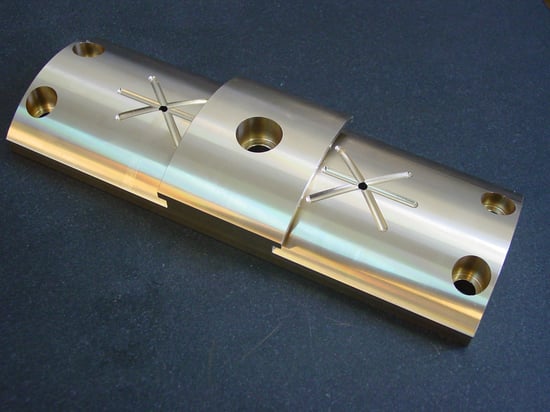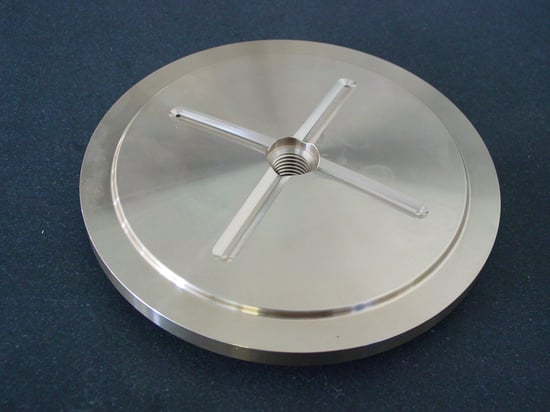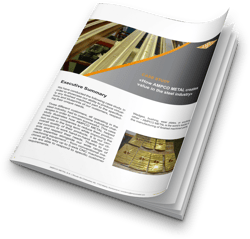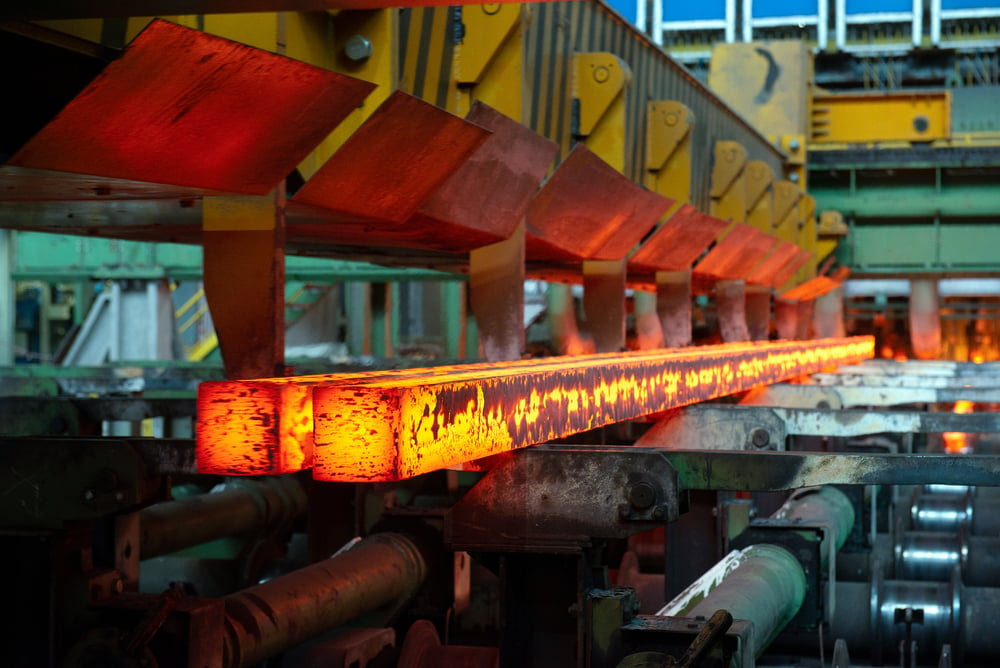The equipment in steel production is subject to a high level of stress - be it due to heat, weight, or friction. Such an environment is not suitable for all materials. Aluminum bronze, however, flourishes under these challenging conditions.
In the bakery, it is one of the most used tools: the rolling pin. Perhaps you have already had the pleasure of using it at home. When rolling out biscuit dough, for example. If so, then you are already familiar with the principles of how steel is shaped into its various forms. Because in a rolling mill, steel does not fare much differently than biscuit dough in the bakery: Through repeated rolling, it deforms until it finally reaches the desired shape.
Unlike the rolling pin, such rolling mills need a lot of space. This is because the steel blocks usually travel a veritable odyssey until they reach the desired shape. On the way, they are heated up in industrial furnaces, cooled down with water and cleaned, guided over rollers to the various rolls, and this time and time again.
Aluminum Bronze – resistant in steel fabrication
Thus, the equipment in a rolling mill has to withstand enormous loads. On the one hand, the weight of the steel blocks, which weighs several tonnes, and on the other hand, the high temperatures. And last but not least, the constant spraying with water also poses a danger, because the moisture means that the material runs the risk of corroding more quickly.
 Slipper, medium, made of aluminum bronze
Slipper, medium, made of aluminum bronze
Aluminum bronzes - varying in their composition - have a wide variety of useful properties. Where other materials might fail prematurely or are very expensive to purchase, Aluminum bronze thrive in these environments. For example, aluminum bronzes offer great advantages in rolling mills and steel manufacture. Below is a list of valuable properties of aluminum bronzes for the steel industry.
Properties of aluminum bronze:
- Very good sliding properties
- High wear resistance
- High pressure resistance
- High ductility
- High compressive strength
- Allow high surface pressure
For which machine parts are aluminum bronzes suitable?
Aluminum bronzes are suitable for various parts in a rolling mill. A thrust bearing, for example, must withstand high compressive forces and also have good sliding properties under pressure. AMPCO® 18.23 is the perfect solution for such tasks, as the nickel-free alloy has very good sliding properties, high hardness and allows a high permitted surface pressure of up to 110 MPa.
 Finished machined part made of aluminum bronze for the steel industry
Finished machined part made of aluminum bronze for the steel industry
Alloys such as AMPCO® 18.23 have been specially developed by AMPCO METAL to meet the high demands of steel production as their wear characteristics are up to 30 % better than standard bronze alloys. However, the high-performance special bronzes from AMPCO METAL are by no means only suitable for axial bearings:
|
V-ledges / |
V ledges are components that are used in a coiler. Their shape allows them to tension the coil and move clamps. | We suggest using sand-casted AMPCO® 18. | |
| Slippers | Slippers are sliding elements in a drive coupling and can compensate for misalignment of the drive rod when adjusting the shafts. | We suggest using slippers made of AMPCO® 18 | |
|
Roller stand |
The roller stand is the component that holds the rolls. It therefore must be adjustable in order to adapt the thickness of the steel to be rolled. Inside the roller stand, you can find many components that can be made of AMPCO alloys such as worm wheel, wear plates, pressure nut, or thrust bearing. |
We suggest the usage of |
|
Ready-to-fit machine parts thanks to AMPCO METAL
The machine parts listed above represent only a fraction of what AMPCO METAL is capable of. Other workpieces made from the unique AMPCO® alloys are already in use around the globe including worm gears, plain bearing bushes, inclined bolts, flanged bushes, wedges, sliding plates, or even entire work rolls.
Want to learn more about how companies in the steel industry can benefit from AMPCO METAL's aluminum bronzes? Download our free case study «How AMPCO METAL creates value in the steel industry» now.





